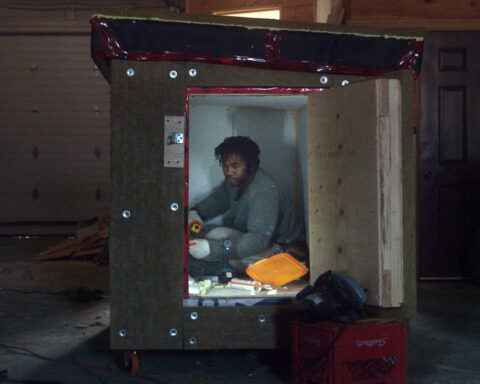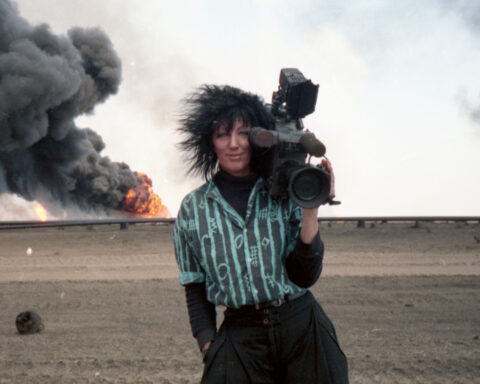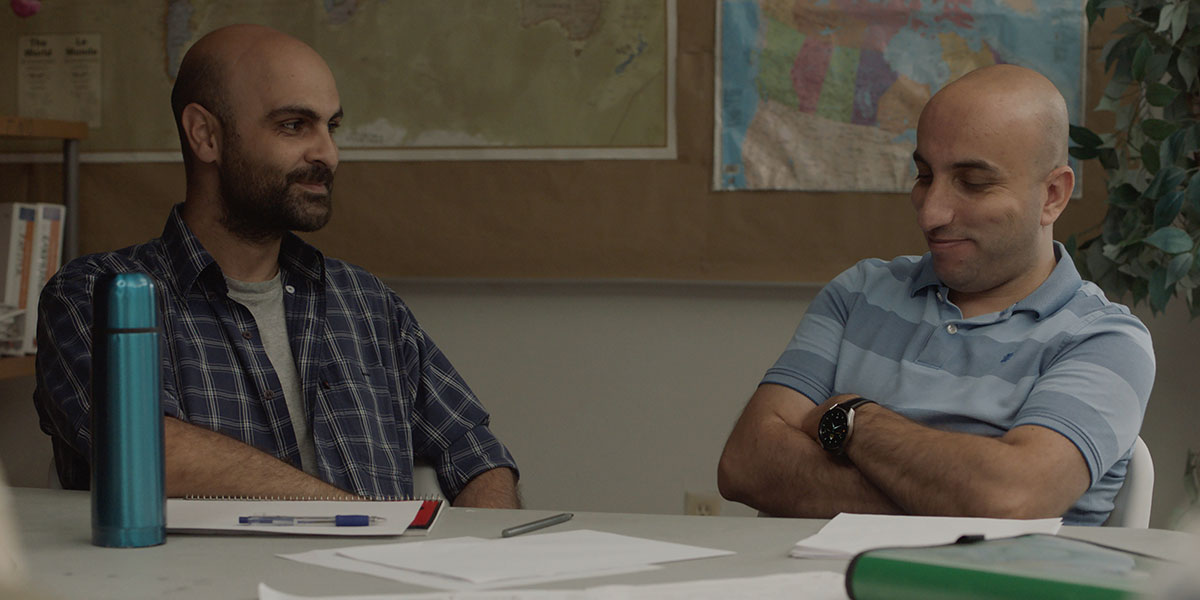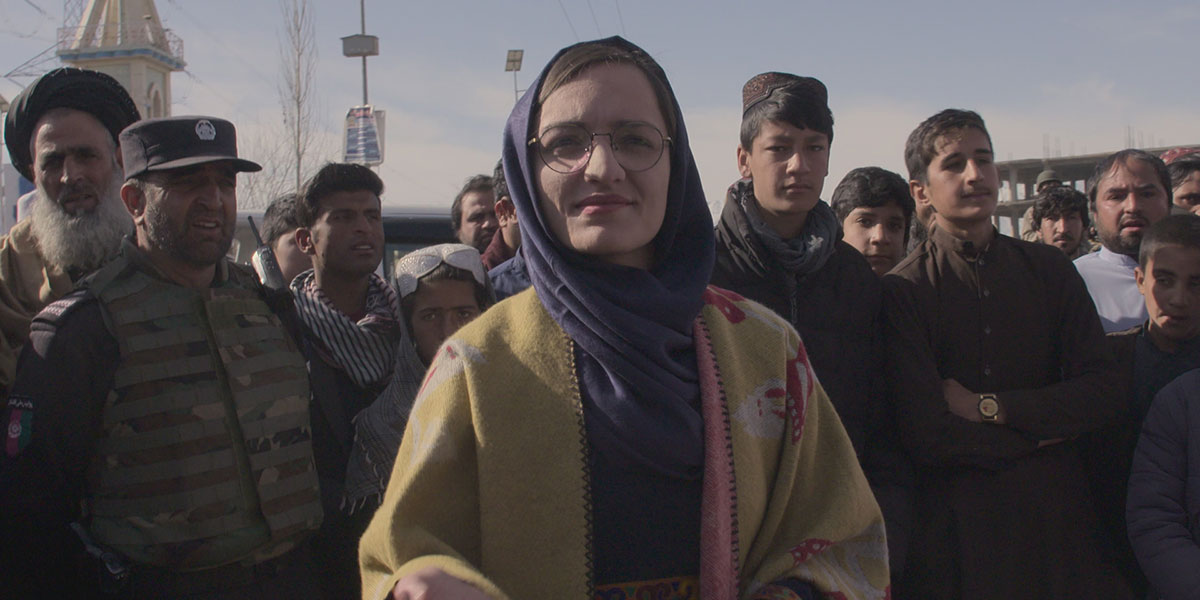While We Watched
(UK, 92 min.)
Dir. Vinay Shukla
Programme: TIFF Docs (World Premiere)
Canadian audiences may find While We Watched especially relevant after Bell Media fired veteran journalist Lisa Laflamme last month after three decades as one of the most reliable voices in the nation’s newscast. The case in Canada echoes the story in While We Watched as the suits playing numbers with newsrooms weigh the value of good reportage against a broadcaster’s bottom line. Primetime news faces extraordinary competition from the 24/7 insanity of the Twitter feed and the unpredictable axe of corporate greed. However, amid the cacophony and chaos, the role of reliable, authoritative, fact-check, and (sadly) fact-based journalism has never been more vital. The field of stalwart familiar faces in the TV journalist’s seat, moreover, is tragically dwindling.
While We Watched smartly captures the state of contemporary news media with a powerful character study of one reporter’s unshakable quest to speak the truth. Director Vinay Shukla (An Insignificant Man) finds an excellent character in Ravish Kumar of India’s NDTV. The case of the veteran journalist is a microcosm for newsrooms worldwide. Kumar’s plight is a compelling snapshot of the age of fake news, alternative facts, and hostility to journalists who speak truth to power. While We Watched captures the frenzied state of journalism by observing one man’s quest to hold the field to the highest standard.
Countering Alt-Facts and Populists
While We Watched tells a story that is both specific and universal as Kumar makes it his mission to tackle the rise of Hindu nationalism in India. He confronts the explosion of populist talk shows that parade speculative diatribes as objective facts. Shukla offers footage of the tabloid news shows that dominate the ratings and force a narrative that Kumar must counter. These sensationalist melees allow the loudest voices to position themselves as the reliable ones. However, anyone who has so much as glanced at FOX News, which these shows chillingly resemble, knows this obviously isn’t true. However, in the face of so much hot air, Kumar’s challenge is to convince the masses to listen to their heads. This challenge is no easy task in a nation with a deeply entrenched class system and longstanding religious divides.
Shukla embeds himself within the newsroom as Kumar considers the deeper stories behind the surge of nationalism. The reporter does that good journalists do: he asks questions and finds reliable sources for answers. While We Watched observes the intricacies of shaping, constructing, and proofing a story to ensure it’s watertight. Kumar investigates rising unemployment, for example, which makes a sizable portion of the working class vulnerable to the persuasive rhetoric of Prime Minister Narendra Modi, who builds a volatile powderkeg of divisiveness. The situation in India bears obvious parallels to right-wing populist movements worldwide. On one hand, the Trump effect is unmistakable. Anyone who asks questions or counters the populist blowhards is charged with being unpatriotic.
In the Face of Censorship
Kumar finds himself in a battle in which the other side simply refuses to be persuaded. That, of course, would implore them to listen. The film asks where the world is headed when a reliance on alternative facts, or alternate realities, become the norm for so many and when stations like NDTV must assert the value of the fourth estate in the face of state censorship.
One riveting sequence sees Kumar assaulted by the might of Hindu nationalism. Once he breaks a story, someone posts his phone number online. His phone rings with threat upon threat as anonymous trolls try to intimidate him. But he holds strong and performs his journalistic duty: he asks questions to his callers and tries to engage them in debate. It’s a futile quest but a courageous effort to engage debate in any available forum.
A Hero’s Send-off
Moreover, While We Watched observes as Kumar confronts these challenges with dwindling capital. NDTV faces the same difficulties that many independent media outlets face: declines in advertising revenue, audience fragmentation, and a dearth of resources both human and financial. The newsroom sees rolling waves of cutbacks as Kumar prepares his stories. Farewell cake festivities mark these bittersweet farewells. Colleagues show the weight of burnout as they cut into their cake and recognize the escalating challenge: each cake means the next set of stories will be even harder to tell.
Shukla observes as Kumar and the declining workforce absorb the workloads of their departed colleagues. One is no longer simply writing a story, one also needs to source video and edit the story on the fly to make the evening news. There are also fewer bodies on the ground to collect and check the facts. Shukla witnesses how scarce resources lead to greater mistakes and sloppy delivery—both of which can be fatal in the age of fake news when the competition has slicker platforms to offset the facts.
Admittedly, While We Watched oddly reflects the slickness of Kumar’s competition. The documentary has the sheen of branded content as it assembles Kumar’s story amid a propulsive collage of cutaways and b-roll. The film treads hagiography as it “sells,” for lack of a better word, Kumar’s courageous effort. Kumar’s spirit might be better reflected with more modesty. However, one can hardly be cynical when the reportage itself is so watertight. Amid a seas of vitriolic windbags, the portrait of Kumar’s unwavering tenacity is most refreshing.














